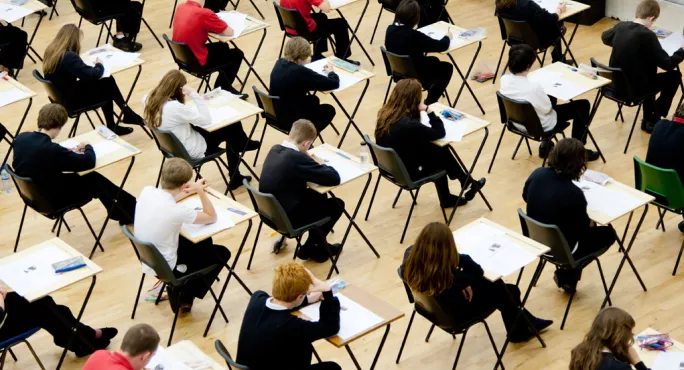- Home
- Ofqual considers GCSE and A-level overhaul that could ration top grades for bright pupils
Ofqual considers GCSE and A-level overhaul that could ration top grades for bright pupils

England’s exams regulator is considering rationing A and A* grades in the GCSE and A-level subjects that attract the brightest pupils, it has been announced today.
The proposal from Ofqual is one of three potential changes that the watchdog is considering in a major overhaul of grading, designed to make exam results in different subjects more easily comparable.
But the idea has already attracted stiff opposition from headteachers and Ofqual itself has acknowledged that it be seen as “dumbing down” in some subjects.
William Richardson, general secretary of the Headmasters’ and Headmistresses’ Conference, which represents top independent schools, said the move would be a “backward step”.
“HMC schools will always want accurate discrimination among candidates using the full grade scale,” he said. “This applies as much at the top of the scale as further down and any attempt to make grade distribution conform across subjects artificially would be a backward step.”
Under Ofqual’s proposal, the same proportion of students would gain each grade in every subject. For example, the top-scoring 30 per cent of pupils taking each exam could be awarded an A or A* grade.
At the moment these vary widely. Some subjects such as further maths, classics and physics see a much higher proportion of pupils receive top grades than others such as design and technology, computing and drama.
This summer 56 per cent of entrants for A-level further maths gained an A or A* grade, compared to 16 per cent in drama and design and technology. The Ofqual proposal would iron these differences out.
“If 50 per cent of geography students were to be awarded grade C or better, then so too should 50 per cent of French students, biology students, mathematics students, and so on,” a report from regulator says. “In other words, the focus is upon standardising grade distributions, rather than on aligning grade standards.”
The proposal is designed to address fears that students are being put off taking languages at GCSE because they believe they will be less likely to score a top grade. Far fewer pupils score a C and above in some language GCSEs than in subjects such as physical education and religious studies.
However, the report warns that the drawback of this approach would be a view that subjects had been “dumbed down”.
It says: “This would be challenging because, of course, grades would have been raised in those subjects with no corresponding rise in attainment levels. It seems quite likely that there would be considerable public dissatisfaction with this apparent grade inflation - however well justified - at least amongst certain communities.”
Other options include changing grade distributions using a measure known as the “Rasch analysis”, which labels subjects as “severe” if pupils tend to perform less well in that subject than they do in others and “lenient” if they perform better in that subject than others. This measure would be likely to increase the proportion of A and A* grades in subjects such as maths and physics.
Another option would be to keep the current system of awarding grades, but introduce a separate “exchange rate” measure that converted those grades to points based on the subject’s difficulty. Under this measure, A-levels in some subjects could be worth more UCAS points than those in others.
Ofqual has also said that making no changes to the current system is an option. It has published the four options because it believes they represent all of the possible ways of addressing the issue of “inter-subject comparability” and has stressed that at present it has no preference for any of the measures.
The watchdog is expected to decide next year which option to recommend.
Ofqual’s chief executive Glenys Stacey said: “We expect a GCSE from one exam board to be as demanding as one from another exam board in the same subject, and as those from previous years. But doing the same for different subjects is another issue.
“Many people would initially expect that all GCSEs should be of the same level, and the same for A levels. And in a very broad sense this is true: they are all set at the same general educational level and need similar amounts of teaching and learning time.
“But when you look closely there are many factors, mostly external, to consider. Is the student’s flair for the subject taken into account and ultimately should you be able to, or even want to, compare say, chemistry and art, or chemists and artists?”
Suzanne O’Farrell, an assessment specialist at the ASCL school leaders’ union, told TES the measure risked putting students off studying subjects such as further maths, by making it harder to gain a top grade.
“Further maths tends to be taken by the really able mathematicians,” she said. “There mustn’t be an option that would encourage people to opt for the easier subjects.”
However, she stressed that she was pleased Ofqual was raising a debate about the issue.
Keep reading for just £1 per month
You've reached your limit of free articles this month. Subscribe for £1 per month for three months and get:
- Unlimited access to all Tes magazine content
- Exclusive subscriber-only stories
- Award-winning email newsletters



